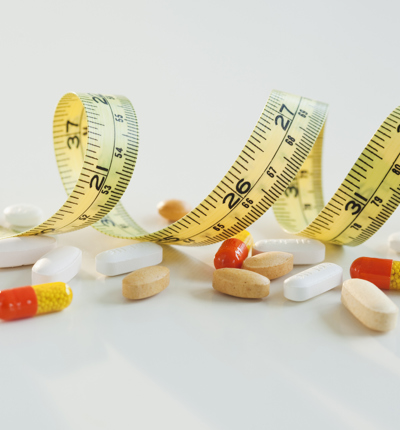
Dieters beware! The role of appropriate drug regulation
Gene Matthews and Charlotte Evans, from the product safety and consumer law team, discuss the need for tight regulation of so-called diet pills in light of a recent legal case in France and the rise of social media influencers.
Posted on 16 January 2020
A landmark French trial began recently seeking to settle one of France’s biggest pharmaceutical scandals, investigating whether Servier Laboratoires, the company behind the weight-loss drug Mediator, covered up the risks associated with the drug.
The amphetamine derivative, which was never authorised in the UK or US, was marketed to overweight diabetics but often prescribed to healthy women as an appetite suppressant when they wanted to lose weight.
It has been suggested that as many as 5 million people were given the drug between 1976 and 2009 despite the fact it was suspected of causing heart and pulmonary failure. The French health ministry found at least 500 people died of heart valve trouble in France because of exposure to Mediator’s active ingredient, but other doctors estimate the figure to be closer to 2,000. Thousands more live with debilitating problems.
After assessing patients records Irene Frachon, a lung specialist, established a link between Mediator and serious heart pulmonary damage in 2007. However, the drug was not withdrawn from the market until 2009. The trial in France will seek to establish why the drug was on the market for so long in France. Lawyers argue that Servier deliberately misled patients for decades. The French State Drug Regulator, the Agence National de Sécurité du Médicament, is accused of leniency and not acting quickly enough to prevent patient deaths and injuries.
The Mediator scandal has stormed for a decade and sparked a political row about drugs regulation and the lobbying power of pharmaceutical companies in France (and more widely) but it also illustrates the dangers of diet pills regardless of whether they are purchased off the shelf or prescribed by your doctor.
Every year thousands of people purchase slimming pills on the internet (some illegal) or diet/detox products promising ‘miracle’ results, but the results are sometimes ineffective and leave you out of pocket; others may have the opposite effect and you gain weight. Even worse, some products can be extremely detrimental to your health as illustrated by those affected by Mediator.
Other examples include Reductil, which contained the now banned substance sibutramine. Although prohibited throughout the EU, the pill is still available to purchase online and there have been numerous reports of disturbing and dangerous side effects.
Danny Lee-Frost head of enforcement at the MHRA told the Guardian in 2018 that:
"Reductil was a big blockbuster, sold all over the world. Very popular, and then reports came in of unforeseen incidents. Strokes and heart attacks… although some pills will openly contain sibutramine... You have pills, capsules and tablets that say they are natural, safe, herbal. But when we have them analysed they contain more sibutramine than the original withdrawn Reductil did. Aduki diet pills, which claim to be completely natural, are one dangerous example."
So if this is known why do dieters still use them? Some argue that Instagram influencers are compounding the problem by promoting their ‘toned bodies’ and ‘aspirational lifestyles’, along with diet pills/products. Yet these influencers often use retouching apps so they can amend images to ensure what the consumer sees is (unrealistic) ‘great’ results. Additionally the same influencers receive payment for each image they promote.
Amid these growing criticisms, Instagram has banned ‘miracle’ diet product promotions by influencers and celebrities. The company has stated that it will remove any posts that make ‘miraculous’ claims about weight loss and are linked to commercial promotion. They have also confirmed that it would start hiding promotions for cosmetic surgeries from under 18s and other diet products. These policies will also apply across Facebook, who owns Instagram.
This move, along with the highly publicised Mediator trial will hopefully remind those wishing to lose weight that there is no quick-fix. Medical advice remains that the only guaranteed method to lose weight effectively is a sustained period of healthy eating and increased exercise. Medical health regulators in the UK, and around the world, hold an important role in preventing unsafe products becoming freely available for consumers, they must fiercely maintain their independence from all external influences and act swiftly to put consumer safety at the heart of their decisions.


